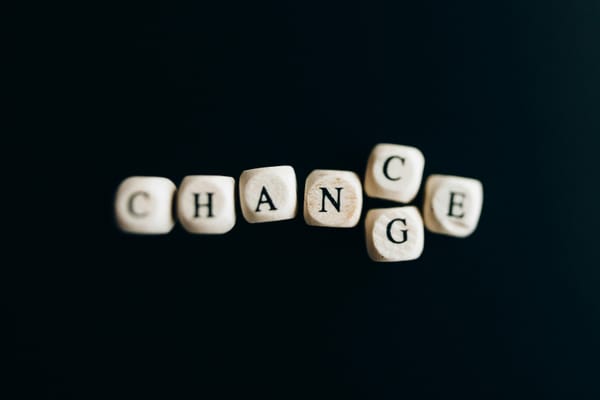Change is inevitable in any society.

Change is inevitable in any society. Using illustrations from Fathers of Nations, write an essay to justify this statement.
Life never stands still; situations shift, people adapt, and new realities replace old ones. Change may be slow and subtle or fast and disruptive, but it touches everyone. In Fathers of Nations, the characters experience changes in their lives and surroundings that they cannot avoid. These events show clearly that change is inevitable in any society.
Pastor Chiamaka’s encounter with the AGDA guide shows how people can be forced to change their behaviour when new authority takes control. Chiamaka first meets this guide through a phone call in his hotel room at The Seamount. The caller tells him to accept him as his guide during his stay and to follow all his instructions. From the start, Chiamaka feels uneasy because the man refuses to give his real name, asking to be called only your guide. When Chiamaka questions this secrecy, the guide becomes angry, shouting at him to “shut your mouth” and warning him never to talk back again. Chiamaka responds with equal anger, accusing the guide of being afraid of contact and perhaps even spying on him. The guide then demands obedience, saying he will initiate all communication and that Chiamaka must keep his AGDA-issued mobile phone on at all times. Matters get more tense when the guide says he saw Chiamaka in the hotel bar drinking a Pepsi and claims that this behaviour is inappropriate for a pastor. Chiamaka feels this is an invasion of his privacy and at first refuses to apologise, but the guide’s insistence and control over the mission eventually make him give in. He apologises and promises not to repeat the action, even though it was just a soft drink. This whole situation shows how quickly personal freedom can shrink when a new authority takes control. Even someone confident in their position, like Pastor Chiamaka, can be forced to change behaviour and accept rules they do not agree with when the power structure around them shifts.
Professor Kimani’s journey from a hopeful academic to a disillusioned reformist demonstrates how repeated disappointments and personal losses can change a person’s life direction. When he first joins the University of Nairobi, he is full of energy and ambition. He fights for the university to be more relevant to society and not just focused on academic excellence. His early campaigns succeed, and he even pushes for the institution to become an active agent of change rather than a passive observer. These victories earn him respect, a professorship, and a happy marriage to Asiya. However, the political and social environment around him begins to shift. Corruption becomes more open, members of parliament award themselves huge untaxed salaries, and the quality of governance declines. At the same time, personal tragedies strike: his daughter Tuni dies in a freak road accident, his marriage collapses when Asiya leaves him for MP Newborn Walomu, and his university humiliates him by demoting him after a public altercation. These events slowly break down his earlier belief that change can come through traditional institutions like the university. By the time AGDA approaches him with Path Alpha, he is ready to leave teaching behind. This change in Kimani’s thinking shows how constant disappointments and personal losses can push even the most determined people to abandon old paths and embrace completely new ones.
The breakdown of Professor Kimani’s marriage after the death of his daughter Tuni reveals how change can be sudden and deeply personal. Tuni’s death in a road accident leaves both parents heartbroken. At first, their shared grief brings them some closure, and they begin to recover slowly. However, the emotional strain does not disappear. Asiya starts to distance herself from Kimani, avoiding his touch and withdrawing into her own gloom. Over time, her feelings harden, and she eventually tells him that she is leaving to marry Newborn Walomu, a younger and politically successful man who used to be Kimani’s junior at the university. Kimani is shocked and tries to reason with her, mentioning their age, their shared history, and the recent loss of their daughter. Asiya rejects these arguments, accusing him of never providing the kind of life she wanted. The next morning, she leaves. This painful change shows how personal relationships are not immune to the pressures of tragedy, disappointment, and shifting priorities. Even after decades together, a marriage can dissolve, forcing both people into completely new lives. In Kimani’s case, the loss of his family adds to his growing dissatisfaction with his career and the state of his country, pushing him further towards joining AGDA’s mission.
The replacement of Way Omega with Path Alpha highlights how failed systems and lost trust can lead to major changes in a society. Way Omega is a document created by Nobel Prize winners, supported by African ministers for planning, and set to be adopted by the heads of state at the Banjul summit. It promises to bring peace and stability by ending coups, rigged elections, and other political abuses. However, AGDA believes Way Omega will fail because it does not address the real obstacles to progress. Instead, AGDA promotes Path Alpha, a rival plan that aims to turn public anger into an organised force for reform. AGDA’s director, Tad Longway, explains to Kimani that Africa’s leaders have failed to keep earlier promises to end poverty, ignorance, and disease, and have instead added corruption and impunity. Path Alpha is designed to confront these problems directly, using civic pressure rather than relying on the same leaders who caused the failures. This change from one development strategy to another shows how societies can abandon old plans when they lose faith in them, opening the door for new, sometimes risky, approaches. It also reflects how inevitable change can come not just from the people in power but from new movements that challenge the status quo.
These experiences clearly show that change is a constant force in both personal lives and in society. Each example proves that no matter the resistance, change finds a way to happen. This shows that in any society, people must learn to face and adapt to change, because it will come whether they are ready for it or not.



